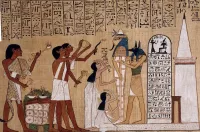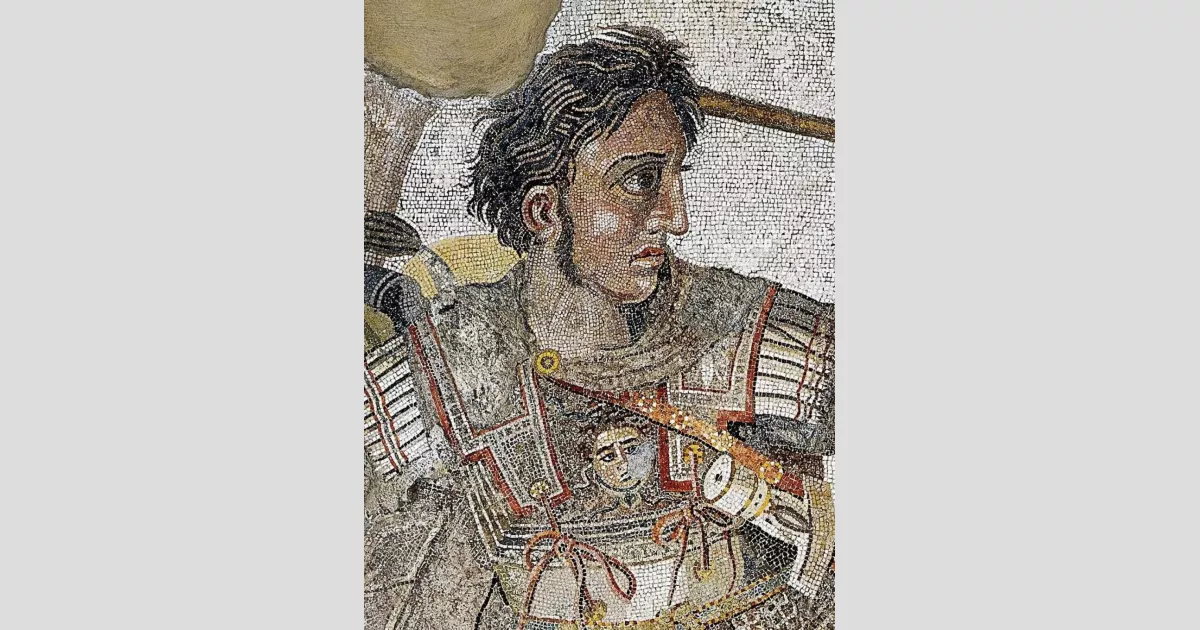"Alexander the Great", King of Macedon, ascended to the throne at 20 years old. He dedicated a significant portion of his reign leading military campaigns across Western Asia, Central Asia, parts of South Asia, and Egypt. By the age of 30, he had established one of the largest empires in history, spanning from Greece to northwestern India. He remained undefeated in battle and is widely regarded as one of history's most exceptional military commanders.
1969: New Insights on the Alexander Sarcophagus
In 1969, Karl Schefold proposed that the "Alexander Sarcophagus" in Istanbul might pre-date the death of Abdalonymus, the king of Sidon appointed by Alexander. The sarcophagus, despite its name, isn't believed to have housed Alexander's remains but depicts him in battle and hunting scenes.
1998: Typhoid Fever as Cause of Alexander's Death
A 1998 article in the New England Journal of Medicine proposed that Alexander the Great died from typhoid fever, which was further complicated by bowel perforation and ascending paralysis.
2003: BBC Documentary Investigates Alexander the Great's Death
In 2003, a BBC documentary explored various theories surrounding Alexander the Great's death, including poisoning. One expert proposed that the plant white hellebore could have been used, aligning with the described symptoms.
2004: Infectious Diseases and Alexander's Declining Health
In 2004, an analysis suggested that pyogenic spondylitis or meningitis might have contributed to Alexander the Great's death. This analysis, along with others, highlighted the possibility of his declining health due to years of heavy drinking and severe wounds.
2010: Water Poisoning Theory Emerges
In 2010, a new theory suggested that Alexander the Great might have been poisoned by water from the river Styx, which contained a dangerous compound called calicheamicin. This theory offered an alternative explanation for his death.
2014: New Research on Alexander the Great's Poisoning
A 2014 manuscript in the journal Clinical Toxicology suggested that Alexander the Great's wine might have been poisoned with Veratrum album. This theory aligns with the prolonged course of his illness and the symptoms he experienced.
2014: Discovery of a Tomb in Amphipolis
In 2014, an enormous tomb from the time of Alexander the Great was discovered in Amphipolis, northern Greece. Initially, there was speculation that it was intended for Alexander, aligning with the destination of his funeral procession. However, it was later found to be dedicated to his close friend, Hephaestion.
2023: Possible Temple Founded by Alexander the Great
In 2023, experts from the British Museum suggested that a Greek temple at Girsu in Iraq might have been founded by Alexander the Great. Recent discoveries indicate that the site honors Zeus and two divine sons, potentially Heracles and Alexander.
Mentioned in this timeline
Iraq officially the Republic of Iraq is a West Asian...
England a constituent country of the United Kingdom occupies roughly...

A funeral is a ceremony for the final disposition of...

Istanbul is Turkey's largest city and its economic cultural and...
Greece officially the Hellenic Republic is a country in Southeast...
Meningitis is an inflammation of the meninges the protective membranes...
Trending

7 months ago Colin Farrell Lauds Rhenzy Feliz; Interviews Danny DeVito About Penguin Roles.

8 months ago Muhammad Ali's enduring legacy: Boxing icon, social activist, and 'The Greatest' remembered.
2 months ago Now You See Me 3: Magic Returns with Jesse Eisenberg in the Lead

7 months ago Margaret Cho Claims Ellen DeGeneres Mistreated Her for Years, Calling Her 'Mean'.

9 months ago Jameson Williams trade rumors swirl as he unfollows Lions; Jets potential landing spot.
8 months ago Jacob Fearnley to face Stan Wawrinka in the French Open 2025 first round.
Popular

Thomas Douglas Homan is an American law enforcement officer who...

XXXTentacion born Jahseh Dwayne Ricardo Onfroy was a controversial yet...
Matt and Ross Duffer known as the Duffer Brothers are...

William Franklin Graham III commonly known as Franklin Graham is...

Martin Luther King Jr was a pivotal leader in the...

Stranger Things created by the Duffer Brothers is a popular...
